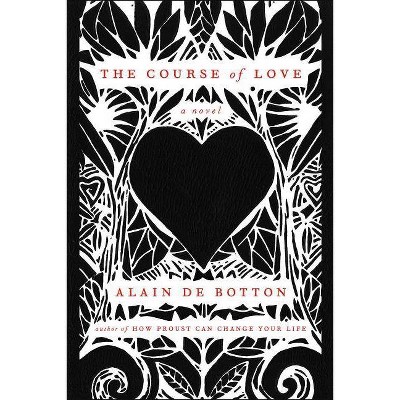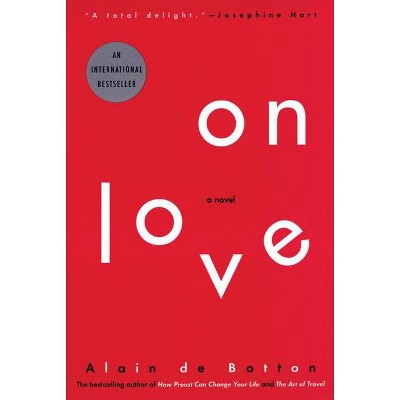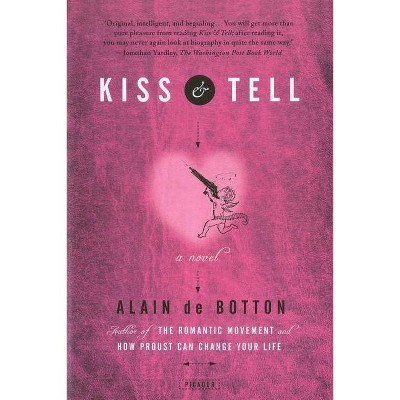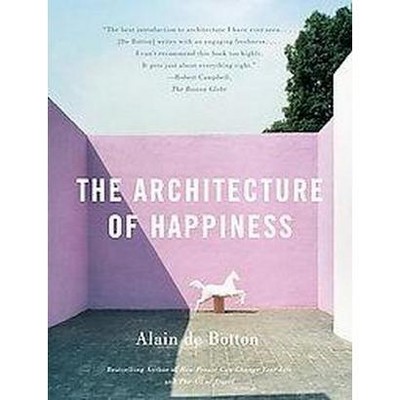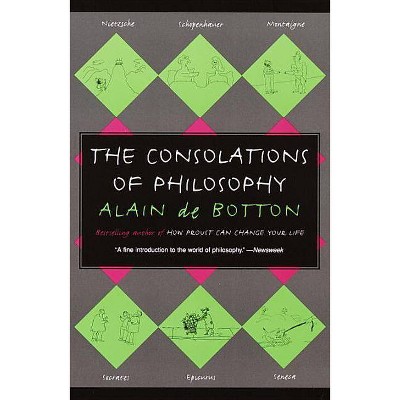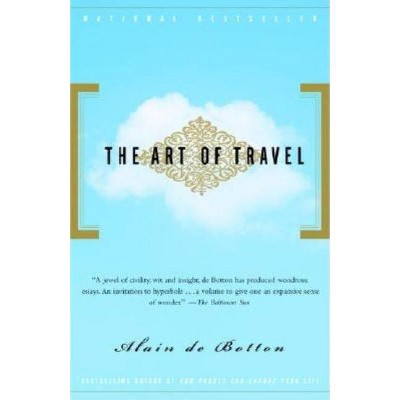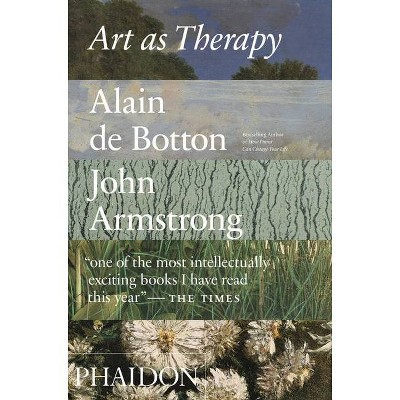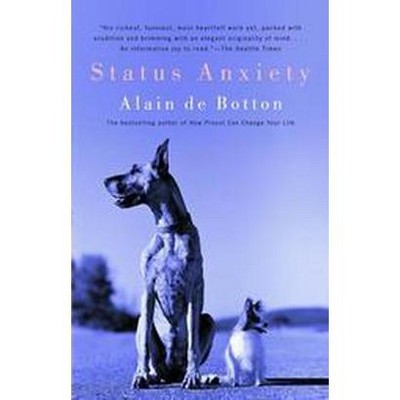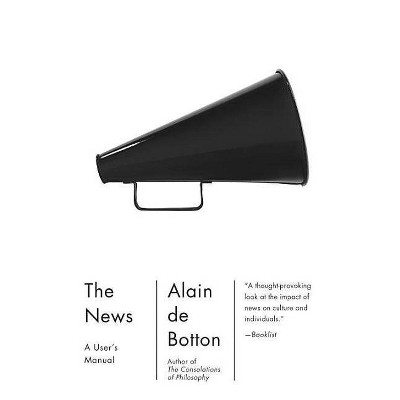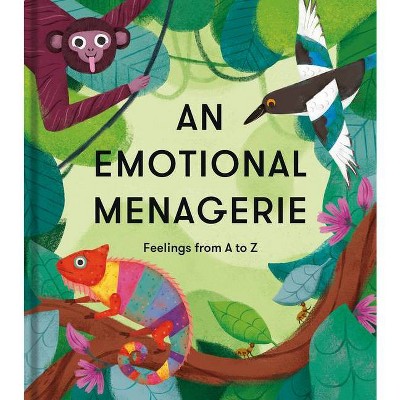The Course of Love - by Alain De Botton (Paperback)
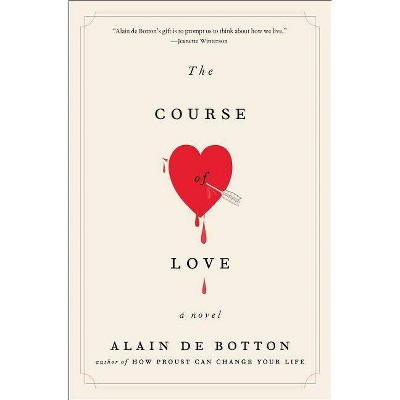
Similar Products
Products of same category from the store
AllProduct info
<p/><br></br><p><b> About the Book </b></p></br></br>How does love survive and thrive in the long term? In Edinburgh, Rabih and Kirsten, fall in love, get married, have children. But this is their story after the first flush of infatuation. As Rabih and Kirsten reform their ideals under the pressures of an average existence, they discover that love is a skill that needs to be learned, and not just experienced.<p/><br></br><p><b> Book Synopsis </b></p></br></br><b>"An engrossing tale [that] provides plenty of food for thought" (<i>People</i>, Best New Books pick), this playful, wise, and profoundly moving second novel from the internationally bestselling author of <i>How Proust Can Change Your Life</i> tracks the beautifully complicated arc of a romantic partnership<i>. </i></b> <p/>We all know the headiness and excitement of the early days of love. But what comes after? In Edinburgh, a couple, Rabih and Kirsten, fall in love. They get married, they have children--but no long-term relationship is as simple as "happily ever after." <i>The Course of Love</i> explores what happens after the birth of love, what it takes to maintain, and what happens to our original ideals under the pressures of an average existence. We see, along with Rabih and Kirsten, the first flush of infatuation, the effortlessness of falling into romantic love, and the course of life thereafter. Interwoven with their story and its challenges is an overlay of philosophy--an annotation and a guide to what we are reading. As <i>The New York Times</i> says, "<i>The Course of Love</i> is a return to the form that made Mr. de Botton's name in the mid-1990s....love is the subject best suited to his obsessive aphorizing, and in this novel he again shows off his ability to pin our hopes, methods, and insecurities to the page." <p/>This is a Romantic novel in the true sense, one interested in exploring how love can survive and thrive in the long term. The result is a sensory experience--fictional, philosophical, psychological--that urges us to identify deeply with these characters and to reflect on his and her own experiences in love. Fresh, visceral, and utterly compelling, <i>The Course of Love</i> is a provocative and life-affirming novel for everyone who believes in love. "There's no writer alive like de Botton, and his latest ambitious undertaking is as enlightening and humanizing as his previous works" (<i>Chicago Tribune</i>).<p/><br></br><p><b> Review Quotes </b></p></br></br><br><b>Praise for <i>On Love</i>: </b><br><b><br></b>The Romantic Movement sheds light on the nature of relationships...The method of telling much and showing little produces a good deal of wit, cogency, and humor.<br><b>--John Updike, <i>The New Yorker</i></b> <p/>A reader gets whiffs of Donald Barthelme, Julian Barnes, Woody Allen...De Botton borrows exuberantly, and well, from forebears [and] therein lies the buoyant charm of this approach.<br>--<b>Lisa Zeidner, <i>The New York Times Book Review </i></b> <p/>Smart and ironic...The success of On Love has much to do with its beautifully modeled sentences, its wry humor, and its unwavering deadpan respect for the reader's intelligence.<br>--<b>Francine Prose, <i>The New Yorker </i></b><br><br><b>Praise for <i>The Architecture of Happiness</i>: </b><br><b><br></b>"De Botton has a marvelous knack for coming at weighty subjects from entertainingly eccentric angles." <br><b>--<i>The Seattle Times</i></b> <p/>An elegant book. . . . Unusual . . . full of big ideas. . . . Seldom has there been a more sensitive marriage of words and images. <br><b>--<i>The New York Sun</i></b> <p/>With originality, verve, and wit, de Botton explains how we find reflections of our own values in the edifices we make. . . . Altogether satisfying. <br><b>--<i>San Francisco Chronicle</i></b> <p/>De Botton is high falutin' but user friendly. . . . He keeps architecture on a human level. <br><b>--<i>Los Angeles Times</i></b><br><br><b>Praise for <i>The Consolations of Philosophy</i>: </b> <p/> "Wonderfully original, quirky.... De Botton finds inspiration where others might fail to look."<br> <b>--<i>Newsday</i></b> <p/> "An enjoyable read... In clear, witty prose, de Botton...sets some of [the philosophers'] ideas to the mundane task of helping readers with their personal problems.... The quietly ironic style and eclectic approach will gratify many postmodern readers."<br> <b>--<i>Publishers Weekly</i></b><br><br><b>Praise for<i> How Proust Can Change Your Life</i>: </b><br><b><br></b>Delightfully original.... As well as being criticism, biography, literary history, and a reader's guide to Proust's masterpiece, this is a self-help book in the deepest sense of the term.<br><b>--<i>The New York Times</i><br></b><br>One of my favorite books of the year.... Seriously cheeky, cheekily serious.<br><b>--Julian Barnes</b> <p/>Curious, humorous, didactic, and dazzling.... It contains more human interest and play of fancy than most fiction.<br><b>--John Updike, <i>The New Yorker</i></b> <p/>A witty, elegant book that helps us learn what reading is for.<br>--<b>Doris Lessing</b> <p/>A wonderful meditation on aspects of Proust in the form of a self-help book. Very enjoyable. <br>--<b>Sebastian Faulks</b> <p/>Funny and very refreshing.<br>--<b><i>San Francisco Chronicle</i></b><br><br><b>PRAISE FOR<i> THE COURSE OF LOVE: </i></b> <p/> "<i>The Course of Love</i> is a return to the form that made Mr. de Botton's name in the mid-1990s.... love is the subject best suited to his obsessive aphorizing, and in this novel he again shows off his ability to pin our hopes, methods and insecurities to the page." <br> <b>-<i>The New York Times</i></b> <p/> "There's no writer alive like de Botton, and his latest ambitious undertaking is as enlightening and humanizing as his previous works."<br> <b>-<i>Chicago Tribune</i></b> <p/> "For me, the publication of any book by Alain de Botton is as much a reason for celebration as it is for cerebration, and his novel<i> The Course of Love</i> is a satisfying look at relationships and the perils of romantic love. This public philosopher writes with verve."<br> <b>-Wall Street Journal (WSJ.com)</b> <p/> "This book is like a self-help book for dating and relationships, disguised as a novel...We understand what each person is thinking and why, with de Botton's insights sprinkled in. It made me rethink what it means to be happy in a relationship."<br> <b>-The Cut (NYMag.com)</b> <p/> "[De Botton] analyzes Rabih's feelings, especially, with the finesse of a therapist--and in fact there is more than a whiff of the couch in this exemplary<b> </b>tale...Readers looking for insights and guidance will find plenty."<br> <b>-NPR</b> <p/> "An engrossing tale [that] provides plenty of food for thought."<br> <b>-<i>People </i>(Best New Books pick)</b> <p/> "Assured...The author deftly delivers both sides of the marriage, exploring the incompatible interplay of romantic love and practical love...Part literary novel, part self-help handbook, "The Course of Love" certainly illuminates the subtle and not-so-subtle fissures of one modern marriage and what it takes for two people to stay together through the years...this nontraditional novel is generous in its spirit and message."<br> <b>-San Francisco Chronicle</b> <p/> "A cunning novel that tells of a couple from the spark of first love, maintenance through the demands of children and career, the challenges of boredom, and aging. What happens to our original ideals under the pressures of an average existence?"<br> <b>-San Francisco Chronicle</b> <p/> "A living, volatile portrait of how two very different souls love, complement and aggravate each other. You may not agree with all of de Botton's thoughts on marriage, but it's wonderful how he makes such a big, sweeping subject out of routine existence...[De Botton's] uncanny access to Rabih's and Kirsten's contrasting feelings, aspirations, insecurities and resentments at every changing stage of their love lives makes the novel a marvel." <br> <i><b>-Seattle Times</b></i> <p/> '"The always-intriguing de Botton, who returns to fiction after 20 years and numerous nonfiction books, aims to answer the question, What is it like to be married for awhile? The answers are often funny but also quite moving, thought provoking, forgiving, and drenched in truth."<br> <b>--</b><b><i>Booklist </i></b> <p/> "An ambitious book; one that resolves, if it cannot change art, to widen our expectations of what we might go to a novel for. The lives of Kirsten and Rabih...help us in a solemn way to examine the illusions and pains that loving relationships are heir to. The Course of Love testifies that discontented families, if we cannot call them unhappy ones, are much alike after all."<br> <b>--Flavorwire</b> <p/> "Well-observed and imbued with a tenderness that feels authentic and uncynical. It may even save some marriages. My bet is that if de Botton's name were taken off this book it would be fêted by the sort of people who are in thrall to Milan Kundera and Adam Thirlwell. He wants us to feel less alone -- and that's not such a bad thing."<br> <b>--</b><b><i>Evening Standard </i>(UK)</b> <p/> "The course of true love may not run smooth, but the storytelling certainly does in this wise, humane and irresistibly readable history of an appealingly nuanced relationship. De Botton deftly moves us through time, weaving in philosophical interludes that showcase his essayistic gifts, so that before we know it we have lived a whole life with these two, and they are just getting started. De Botton directs his ferocious intelligence at the most complex puzzle of all, and it seems that no intellectual or emotional problem surpasses his ability to solve it."<br> <b>--Matthew Thomas, <i>New York Times </i>bestselling author of <i>We Are Not Ourselves</i></b> <p/> <i>"The Course of Love</i> is a complete delight. Not surprisingly, I feel that Alain de Botton not only wrote it for me, but also that we must have been conversing on these subjects happily and deeply, privately or in my dreams."<br> <b>--Amy Bloom, <i>New York Time</i>s bestselling author of <i>Away</i> and <i>Lucky Us</i></b><br><p/><br></br><p><b> About the Author </b></p></br></br>Alain de Botton is the author of numerous works of fiction and nonfiction, including <i>On Love</i>, <i>How Proust Can Change Your Life</i>, <i>The Consolations of Philosophy</i>, <i> The Art of Travel</i>, and <i>The Course of Love</i>. He lives in London where he founded The School of Life, an organization devoted to fostering emotional health and intelligence. More can be found at AlainDeBotton.com
Price History
Price Archive shows prices from various stores, lets you see history and find the cheapest. There is no actual sale on the website. For all support, inquiry and suggestion messagescommunication@pricearchive.us
